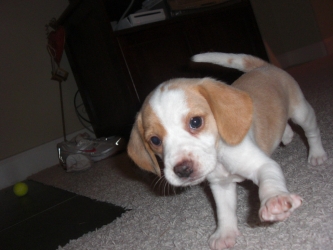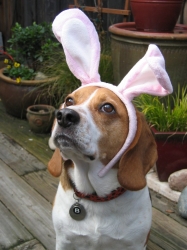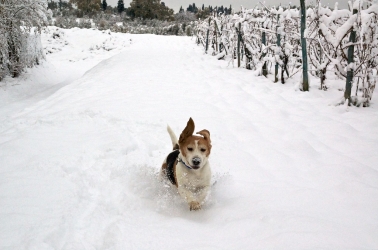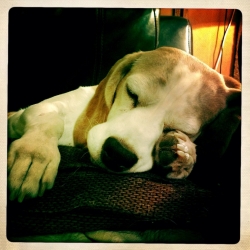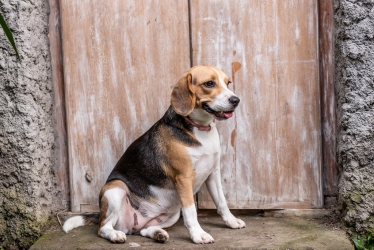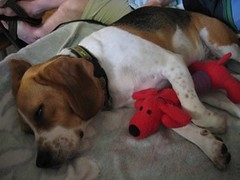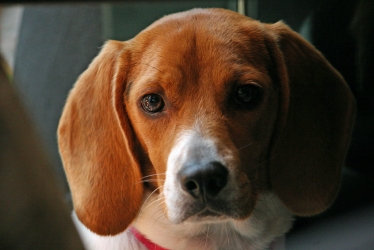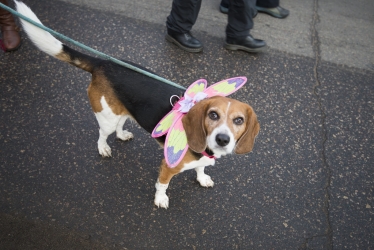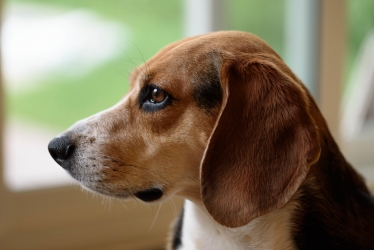Beagle
Beagle Behavior and Temperment
| Indoor Activity | Outdoor Activity | Vigor | Consistant Behavior |
| Dominance Strange Dogs | |
| Territorial | |
| Good With Children | |
| Good With Strangers |
The Beagle is probably the product of a crossing between the Harrier and ancient English Hounds. The breed goes back centuries to the Early Middle Ages. Beagles cherished by many English monarchs, including Henry VIII, and Elizabeth I.
The beagle is used for hunting wild rabbit, quail, fox, and squirrel. During the sixteenth century, with even smaller dimensions, hunters who referred to them as the "pocket Beagle, would take them to the hunt in little baskets attached to their saddles.
Beagles are easily trained, and very versatile. In Australia they're used for hunting kangaroos, and in the Americas they've adapted at catching fish.
Beagles are also know for their harmonious voice, described as a polyphonic bark. Once source describes the sound of a pack of Beagles on a hunt as "like an echo of the hunting horn". The English speak of the "singing Beagle" and that "hunting with Beagles is like hunting to music".
As a pet, the Beagle is affectionate and good natured. During the 1950s the Beagle was the most popular breed in the United States, followed closely by the Cocker Spaniel. With their small size and pleasant faces, Beagles are very clean, well behaved, move gracefully, and are generally quiet.

